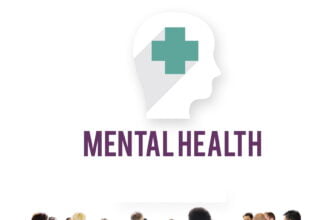Embarking on a career as a mental health professional is a noble and rewarding journey. The field of mental health offers numerous opportunities to make a significant impact on individuals’ lives, helping them navigate through their mental and emotional challenges.
Whether you’re considering becoming a licensed clinical social worker (LCSW), psychologist, or another type of mental health professional, there are several crucial aspects you need to understand before diving in.
This article will guide you through the essentials, from understanding the educational requirements to managing the emotional toll of the job.
Understanding Educational and Licensure Requirements
Before you can start practicing as a mental health professional, you must meet specific educational and licensure requirements. The path you choose will determine the precise steps you need to take.
For instance, if you’re debating between becoming an LCSW vs psychologist, you’ll find that each role has unique requirements and responsibilities.
Licensed Clinical Social Worker (LCSW)
To become an LCSW, you need to obtain a Master of Social Work (MSW) degree from an accredited institution. After earning your degree, you’ll be required to complete a certain number of supervised clinical hours, which can range from 2,000 to 4,000, depending on your state’s regulations. Additionally, you’ll need to pass a licensure exam. LCSWs primarily focus on providing therapy and counseling, often dealing with a wide range of social issues, including child welfare, substance abuse, and family therapy.
Psychologist
On the other hand, becoming a psychologist typically requires a doctoral degree in psychology (Ph.D. or Psy.D.). This path involves a more extended period of study, including a comprehensive internship and a dissertation.
Psychologists often specialize in specific areas, such as clinical psychology, counseling psychology, or school psychology.
They conduct assessments, diagnose mental health conditions, and provide therapy. The licensure process also includes passing the Examination for Professional Practice in Psychology (EPPP).
Both paths offer unique opportunities to make a difference in people’s lives, and your choice will depend on your interests, career goals, and the population you wish to serve. Understanding these requirements is crucial as it helps you plan your educational journey and prepare for the challenges ahead.
Developing Essential Skills and Competencies
A successful career in mental health requires more than just academic knowledge. Developing a set of essential skills and competencies is crucial for effectively supporting your clients and managing the demands of the job.
Here are some key skills every mental health professional should cultivate:
- Empathy and Compassion
Empathy is the ability to understand and share the feelings of another person. As a mental health professional, being empathetic allows you to connect with your clients on a deeper level, making them feel heard and understood.
Compassion goes hand-in-hand with empathy, enabling you to provide support and encouragement to those who are struggling.
- Communication Skills
Effective communication is vital in therapy and counseling. You need to be able to convey your thoughts clearly and listen actively to your clients. Good communication helps build trust and rapport, which are essential for a successful therapeutic relationship.
Additionally, strong communication skills are necessary for collaborating with other professionals and advocating for your clients’ needs.
- Critical Thinking and Problem-Solving
Mental health professionals often encounter complex and challenging cases. Being able to think critically and solve problems efficiently is essential for developing effective treatment plans and interventions. This involves analyzing situations from different perspectives, identifying potential solutions, and implementing strategies that best suit your clients’ needs.
- Self-Care and Resilience
Working in mental health can be emotionally taxing. It’s essential to practice self-care and develop resilience to prevent burnout.
This includes setting boundaries, seeking supervision or peer support, and engaging in activities that promote your well-being. By taking care of yourself, you can better support your clients and maintain a sustainable career.
- Navigating the Challenges of the Profession
While a career in mental health is fulfilling, it comes with its own set of challenges. Being aware of these challenges and developing strategies to navigate them is crucial for long-term success and satisfaction in your career.
- Emotional and Mental Strain
One of the most significant challenges mental health professionals face is the emotional and mental strain of working with clients who are experiencing severe distress or trauma. It’s common to feel overwhelmed or affected by your clients’ stories.
Developing coping mechanisms, such as mindfulness practices or engaging in hobbies, can help you manage this strain.
- Maintaining Professional Boundaries
Maintaining professional boundaries is essential to prevent dual relationships while ensuring ethical practice. It’s important to establish clear boundaries with your clients to avoid conflicts of interest and maintain the integrity of the therapeutic relationship.
This includes setting limits on personal disclosure and ensuring that your interactions remain professional at all times.
- Continuing Education and Staying Current
The field of mental health is constantly evolving, with new research and treatment approaches emerging regularly. Staying current with the latest developments is crucial for providing the best care to your clients.
This involves participating in continuing education opportunities, attending workshops, and engaging with professional organizations. By staying informed, you can enhance your skills and knowledge, ensuring that your practice remains effective and relevant.
- Balancing Work and Personal Life
Finding a balance between your professional responsibilities and personal life can be challenging in a demanding field like mental health. It’s essential to set aside time for yourself and your loved ones to maintain a healthy work-life balance. This may involve managing your caseload effectively, delegating tasks, and prioritizing self-care.
Starting a career as a mental health professional is a significant commitment that requires dedication, compassion, and resilience. Understanding the educational and licensure requirements, developing essential skills, and navigating the challenges of the profession are all crucial steps in building a successful and fulfilling career.
Whether you choose to become an LCSW, psychologist, or another type of mental health professional, your work will have a profound impact on the lives of those you serve.
By staying informed, practicing self-care, and continually honing your skills, you can create a positive and lasting impact in the field of mental health.










